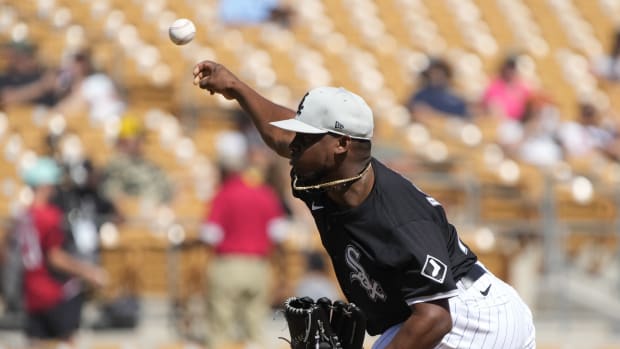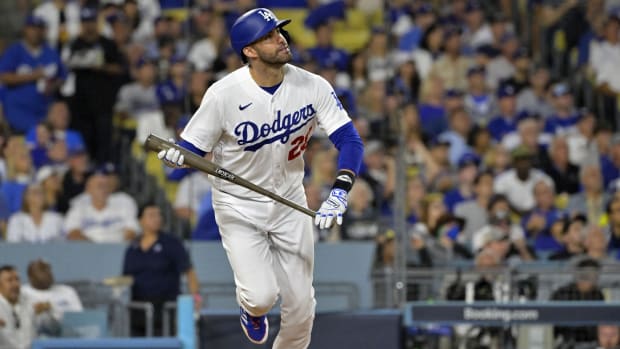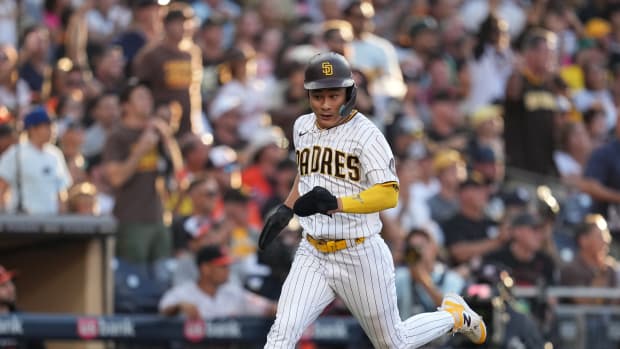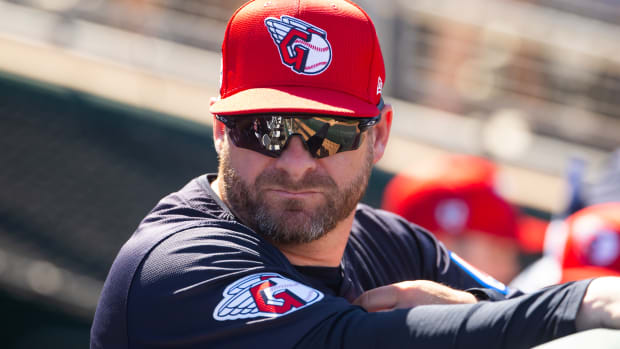Five Soon-to-Be Free Agents With the Most to Lose From a Postponed Season
At the end of January, back when the pandemic had yet to become a pandemic, I took the bold step of ranking Mookie Betts No. 1 on my way-too-early list of next winter's top free agents.
Oh, what an innocent time it was.
Less than three months later, the context for my free-agent rankings has completely changed. It was written under the assumption that baseball would begin as usual, giving players such as DJ LeMahieu (No. 5), Trevor Bauer (No. 3) and George Springer (No. 2) the chance to boost their value in a contract year. Now we don't know if there will be any baseball this year.
Let's highlight the five upcoming free agents who have the most to lose from a drastically shortened or canceled 2020 season.
5. Yoenis Céspesdes, OF, New York Mets
Through one lens, Céspedes has perhaps the most to lose from a canceled season. The Mets outfielder will be 35 in October, and this season may have been his last chance to earn a major league contract going forward. He missed all of last year and has played in 119 games total since signing a four-year, $110 million deal with the Mets after the 2016 season.
It’s safe to say Céspedes's prospects to cash in this winter probably weren’t too high to begin with, even if the season went on as normal. If his recent injury history isn't enough of a red flag for teams, the bizarre incident last year with a wild boar that left him with a fractured ankle probably limits his shot at a favorable contract.
4. Marcus Semien, SS, Oakland Athletics
Semien had all the momentum entering his contract year. He finished third in AL MVP voting last season after playing all 162 games, hitting 33 home runs with a 138 OPS+ and posting 8.9 WAR—more than every other player except Alex Bregman and Cody Bellinger. There are few things more valuable in the sport than an elite shortstop.
The problem for Semien is his breakout season was so much better than anything we’ve seen from him before. Last year was the first time Semien was even an average big-league hitter (100 OPS+). How do you prove you're no fluke? By putting up the same numbers again. Now he may not have that chance before free agency.
3. Didi Gregorius, SS, Philadelphia Phillies
Gregorius had unfortunate timing in his free agent debut. He was destined for a substantial payday after back-to-back strong seasons in 2017-18. But his value diminished after receiving Tommy John surgery in late ‘18 and missing half of last season in his recovery.
That led to the shortstop signing a one-year, $14 million deal with the Phillies, betting on himself to produce a strong season before hitting free agency at age 30. Now, unless baseball returns this year and Sir Didi proves he’s the same player he was in ‘17 and ‘18, he may have to settle for a similar one-year deal once again.
2. Trevor Bauer, SP, Cincinnati Reds
Speaking of one-year deals, Bauer has said these are the only contracts he wants to sign. The righthander's rationale is that he’ll make more on expensive, short-term deals as teams won’t have to worry about the risks that come with signing pitchers to lengthy contracts.
This strategy only works, however, if teams value one year of Bauer as much as he thinks they do. His 4.48 ERA over 213 innings last season didn't exactly boost his stock. His per-nine rate stats (hits, walks, strikeouts and home runs) all moved in the wrong direction from 2017 to 2018. His eccentricities have been well documented over the years, and it's not impossible to think that could dissuade some teams from being interested in him.
If the most recent memory clubs have of Bauer is his dreadful stint with the Reds (6.39 ERA over 56 1/3 innings) at the end of last year, it could cost him millions.
1. George Springer, OF, Houston Astros
The questions of how much Springer benefitted from the Astros’ sign-stealing operation likely won’t go away. This year was his chance to reaffirm his accomplishments before entering free agency, and a shortened season gives him even less time to do that. If there’s no baseball at all this year, those doubts will follow him into the offseason.
Durability has also been an issue for Springer. Even if teams aren’t worried about the legitimacy of his offensive production, they’d still have to consider the risks of investing in a 31-year-old outfielder with an injury history. Springer has missed at least 20 games in each of the last three seasons. The 122 games he played in ‘19 are his fewest since ‘15.
I wrote this past January: “Staying healthy in 2020 will be almost as important for Springer’s free-agent value as his offensive production.” He can’t ease either of those concerns if there is no baseball this year.



































